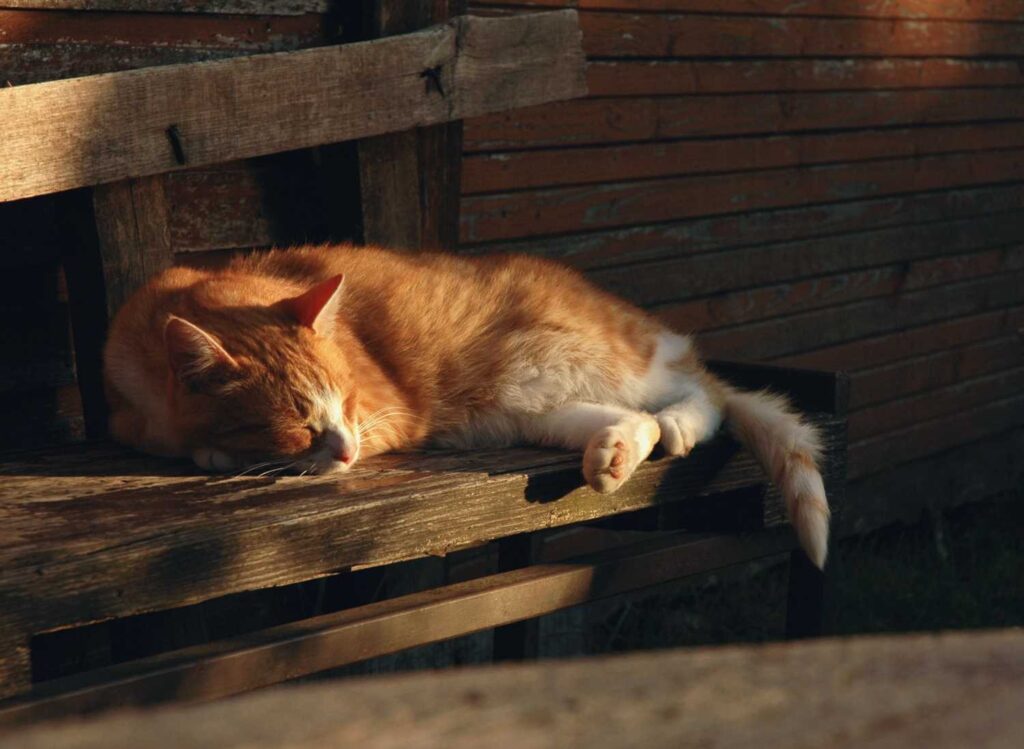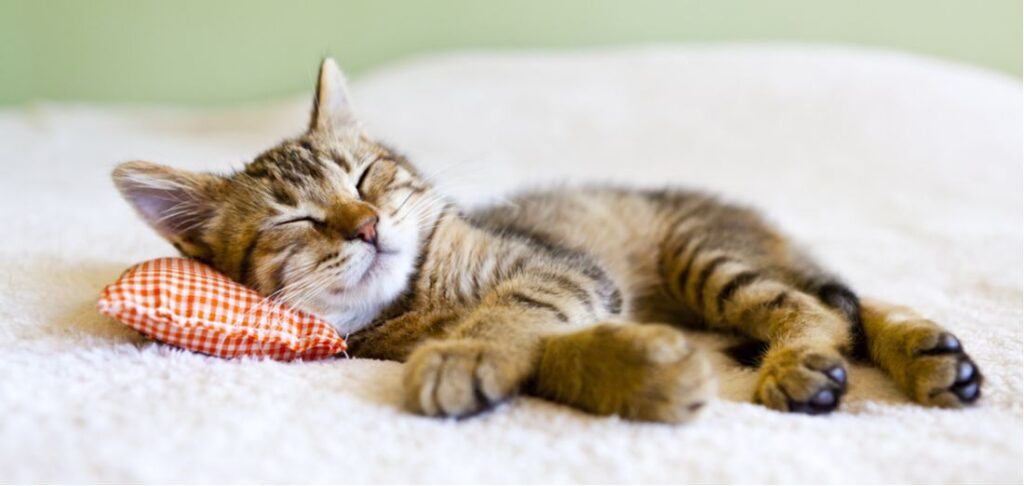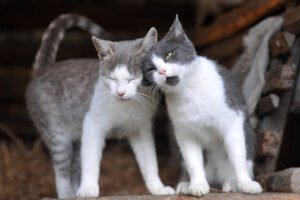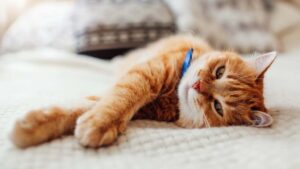Why Do Cats Sleep More During the Summers?

Cats are known for their love of sleep, and it is not uncommon to see them napping away for hours on end (up to 16 hours a day).
Many cat owners will notice that their cats tend to sleep even more than usual during the summer months (Jun – Aug). While it may be tempting to assume that cats are simply lazier in the heat, the reality is that several scientific and environmental factors contribute to this behavior.
This article will discuss these various reasons and explain why cats sleep more during the summers. Read on!
Do Cats Sleep More During the Summers?
First, let’s discuss some statistics about cats and the amount of sleep they require.
- Cats are known to sleep for about 12 – 16 hours on average every day.
- Indoor and elderly cats may sleep longer than outdoor cats.
- Senior cats can sleep up to 20 hours each day.
- Young and newborn kittens require a lot of sleep for their development and can sleep up to 22 hours a day.
Do cats tend to sleep more in warm weather? Yes, it’s true.
This is because they need to preserve their energy and prevent overheating.
Your cat may sleep throughout the rest of the day and night, waking up only briefly to eat, drink, change sleeping positions, or use the litter box. Short waking periods are common among healthy adult cats, who tend to fall asleep quickly after waking up briefly.
Unless there is a significant change in your cat’s sleep patterns, they are likely exhibiting normal feline behavior. Some may not be affected by the summer weather too much, whereas some might be. Other external factors will also matter, such as your location and the average room temperature.
The Science of Temperature Regulation in Cats
Cats are incredibly sensitive to changes in temperature and have a unique physiological response to heat. Unlike humans, cats don’t have sweat glands all over their bodies to help cool them down. Instead, they primarily rely on panting and grooming to regulate their body temperature.
During the summer months, when temperatures are high, cats may become overheated more easily, which can cause them to sleep more as a way to conserve energy and reduce their body heat.
The Role of Light in Feline Sleep Patterns
Light is an essential factor in regulating feline sleep patterns. In the summer months, when the days are longer, cats may have more exposure to daylight, which can affect their sleep patterns. This can cause them to sleep more during the day and become more active at night, as they may be more sensitive to changes in light and dark.
How Cats’ Diets Affect Their Sleep During the Summer Months
Diet can also play a significant role in feline sleep patterns, especially during the summer months. Cats are natural carnivores and require a high-protein diet to thrive. However, during the summer, cats may eat less due to the heat, which can lead to them feeling more lethargic and sleeping more as a result.
The Importance of Providing a Cool and Comfortable Sleeping Environment

To help cats regulate their body temperature and get the rest they need during the summer months, it’s crucial to provide them with a cool and comfortable sleeping environment. This can include:
- providing plenty of fresh water
- keeping the home well-ventilated
- offering cool surfaces for cats to rest on, such as tile or marble floors or cool, damp towels.
Additionally, investing in a cooling mat or bed for your cat can be beneficial, especially if your home doesn’t have air conditioning or if your cat spends a lot of time outdoors. These types of beds use materials that absorb and dissipate heat, helping to keep your cat cool and comfortable.
It’s also important to provide your cat with access to shade and plenty of cool, fresh air if they spend time outdoors. This can be achieved by creating a shaded area in your yard with a canopy or awning, or by providing a covered porch or patio for your cat to relax on.
In addition to environmental factors, it’s important to consider your cat’s individual preferences when it comes to sleeping arrangements. Some cats may prefer to sleep in a cool, dark room with minimal distractions, while others may enjoy snuggling up to their human companions for extra warmth and comfort.
When to Seek Veterinary Attention for Changes in Feline Sleep Patterns
While it’s normal for cats to sleep more during the summer months, it’s important to monitor changes in feline sleep patterns to ensure that there aren’t any underlying health concerns. If your cat is sleeping excessively, isn’t eating or drinking normally, or seems lethargic or unresponsive, it’s essential to seek veterinary attention.
These symptoms could indicate heatstroke, dehydration, or other underlying health issues that require immediate attention.
Conclusion
In conclusion, understanding why cats may sleep more during the summer months requires a closer look at factors such as temperature regulation, light exposure, diet, seasonal changes, and sleeping environment. By paying close attention to your cat’s sleep patterns and providing a cool and comfortable environment, you can help ensure that your feline companion gets the rest they need to stay healthy and happy.


